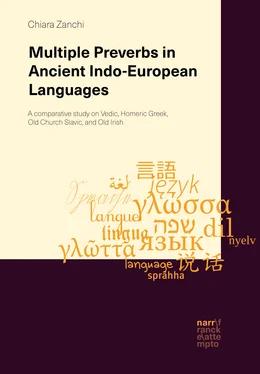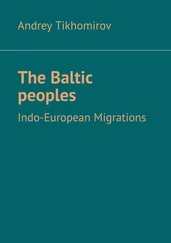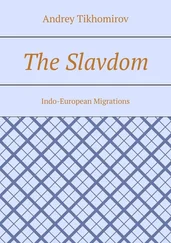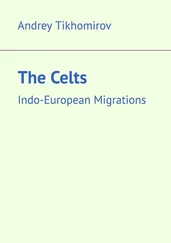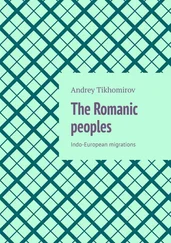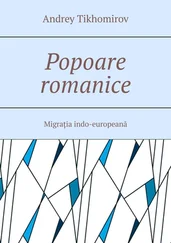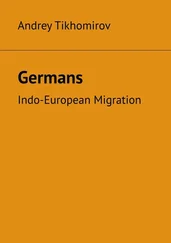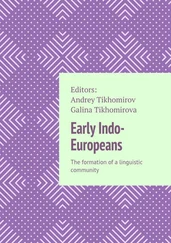Chiara Zanchi
Multiple Preverbs in Ancient Indo-European Languages
A comparative study on Vedic, Homeric Greek, Old Church Slavic, and Old Irish
Narr Francke Attempto Verlag Tübingen
[bad img format]
© 2019 • Narr Francke Attempto Verlag GmbH + Co. KG
Dischingerweg 5 • D-72070 Tübingen
www.francke.de• info@francke.de
Das Werk einschließlich aller seiner Teile ist urheberrechtlich geschützt. Jede Verwertung außerhalb der engen Grenzen des Urheberrechtsgesetzes ist ohne Zustimmung des Verlages unzulässig und strafbar. Das gilt insbesondere für Vervielfältigungen, Übersetzungen, Mikroverfilmungen und die Einspeicherung und Verarbeitung in elektronischen Systemen.
E-Book-Produktion: pagina GmbH, Tübingen
ePub-ISBN 978-3-8233-0125-7
To the memory of my parents
This book is a revised version of my PhD thesis, which was written between 2014 and 2017, when I was a PhD student of the Doctoral School in Linguistic Sciencies at University of Pavia and University of Bergamo. Thus, first and foremost, my deepest thanks go to my PhD supervisor, Silvia Luraghi: what I owe her goes far beyond the scope of this work.
I also sincerely thank my co-advisors. For Elisa Roma, it would be an understatement to define her contribution to the chapter on Old Irish as crucial. My gratitude also goes to Pierluigi Cuzzolin for his insightful comments, especially relating to the chapter on Old Church Slavic. Among my co-advisors, Brian D. Joseph deserves special mention: he warmly welcomed me to Ohio State University during the spring term 2017, where I spent four of the most scientifically inspiring and pleasant months of my academic life.
This work benefited enormously from my one-year visit at Friedrich Schiller Universität Jena, for which my most sincere gratitude goes to Martin J. Kümmel. Among people in Jena, I also wish to thank Sergio Neri, Cassandra Freiberg, and Annemarie Verkerk. Cormac Anderson from the MPI in Jena merits special mention, as he was so kind as to provide me with the first group of Old Irish data, which greatly facilitated my continuing collection. Similarly, Hanne M. Eckhoff deserves special thanks for extracting from the TOROT Treebank the Old Church Slavic verbs of this work in 2015. During my stay in Jena, I had the honor of being invited to a special workshop on preverbs held at University of Mainz in May 2016. I thank Björn Wiemer for inviting me to this workshop, where I met Peter Arkadiev, Andrej Malchukov, and Kirill Kozhanov. This work has benefited from the discussions held with each of them.
Among the several people with whom I had conversations relating to preverbs, some call for an explicit mention. Since my Erasmus in Salzburg dating back to 2013, Thomas Krisch has been showing his interest in my work on multiple preverbs, for which I am most grateful. He was one of the external evaluators of my PhD thesis as well: his insightful comments immensely enhanced the final version of this book. Besides being one of the editors of the present book series, Carlotta Viti was also one of the external evaluators of my PhD thesis: her enthusiasm for my work very much contributed in making this book possible. I take this opportunity to thank the co-editors of the book series, Katrin Schmitz and Joachim Theisen, as well as the members of its scientific committee, Daniel Petit, Georges-Jean Pinault, and Sabine Ziegler. In addition, I wish to warmly thank Alexander Lubotsky: during my PhD defence, he provided me with constructive criticism, which especially contributed to improving the chapters relating to Vedic and to Old Church Slavic. Leonid Kulikov also gave me thoughtful suggestions on the chapter relating to Vedic. Craig Melchert, whom I met in Carrboro (NC) in March 2017, answered my many rapid questions on Indo-European preverbs. Pier Marco Bertinetto also took the time to explain to me how applicatives work in Ayoreo in a very long and extremely interesting Skype call.
This is also the right forum in which to deliver my deepest thanks to all scholars, colleagues, and students who privately shared their own monographs, papers or theses with me: thanks to Luisa Ruvoletto, Cinzia Citraro, Marco Budassi, Costanza Conforti, Luisa Borchio, and Carlo Dalle Ceste.
This book would never have been concluded without the support of my colleagues. I express my gratitude to Guglielmo Inglese, one of the most brilliant and amazingly sarcastic linguists I know and value. I thank Erica Pinelli for our neverending discussions on metaphors and metonymies and for the reciprocal support we wholeheartedly offer each other. Last but not least, I thank Chiara Naccarato: during our PhD school, I was lucky enough to gain her as an excellent colleague, as an ever-present next-door neighbor, and as a faithful companion in Romanian summer schools as well as in Russian international conferences. But, above all, my greatest fortune was to earn her precious friendship.
List of abbreviations
Glosses
| ABL |
ablative |
| ABS |
absolutive |
| ACC |
accusative |
| ADV |
adverb |
| ADP |
adposition |
| ALL |
allative |
| ANA |
anaphoric |
| AOR |
aorist |
| APP |
applicative |
| ARG |
argument |
| ART |
article |
| AUG |
augment |
| CL |
clitic |
| CONJ |
conjunction |
| D |
definite conjugation |
| DAT |
dative |
| DEICT |
deictic |
| DEM |
demonstrative |
| DISTR |
distributive |
| DU |
dual |
| E |
enclitic |
| EM |
emphatic |
| EP |
exterior preverb |
| EX |
existential |
| EXCL |
exclusive |
| F |
feminine |
| FUT |
future |
| GEN |
genitive |
| GER |
gerund |
| I |
indefinite conjugation |
| IMP |
imperative |
| IMPF |
imperfect |
| INDF |
indefinite |
| INJ |
injunctive |
| INS |
instrumental |
| INT |
interrogative |
| INTENS |
intensive |
| IP |
interior preverb |
| IPFV |
imperfective |
| LOC |
locative |
| MID |
middle |
| MP |
medial preverb |
| M/P |
medio-passive |
| N |
noun |
| N |
neuter |
| NEG |
negation |
| NOM |
nominative |
| NP |
noun phrase |
| O |
object |
| OPT |
optative |
| P |
preverb |
| PASS |
passive |
| PFV |
perfective |
| PL |
plural |
| POSS |
possessive |
| POT |
potential |
| PP |
Prepositional Phrase |
| PREPP |
Prepositional Preverb |
| PRET |
preterit |
| PREVP |
Preverbal Preverb |
| PROT |
prototonic |
| PST |
past |
| PTC |
particle |
| PTCP |
participle |
| P2 |
second position |
| REC |
reciprocal |
| RED |
reduplication |
| REFL |
reflexive |
| REL |
relative |
| S |
subject |
| SBJV |
subjunctive |
| SFX |
suffix |
| SG |
singular |
| SR |
semantic role |
| SUP |
supine |
| V |
verb |
| VOC |
vocative |
| VP |
verbal phrase |
| 1 |
first person |
| 2 |
second person |
| 3 |
third person |
In glosses, the nominal number is specified only if it is plural or dual (singular is not indicated), gender is not indicated unless it is feminine or neuter. Among verbal categories, indicative mood and active voice are likewise not indicated.
Читать дальше
